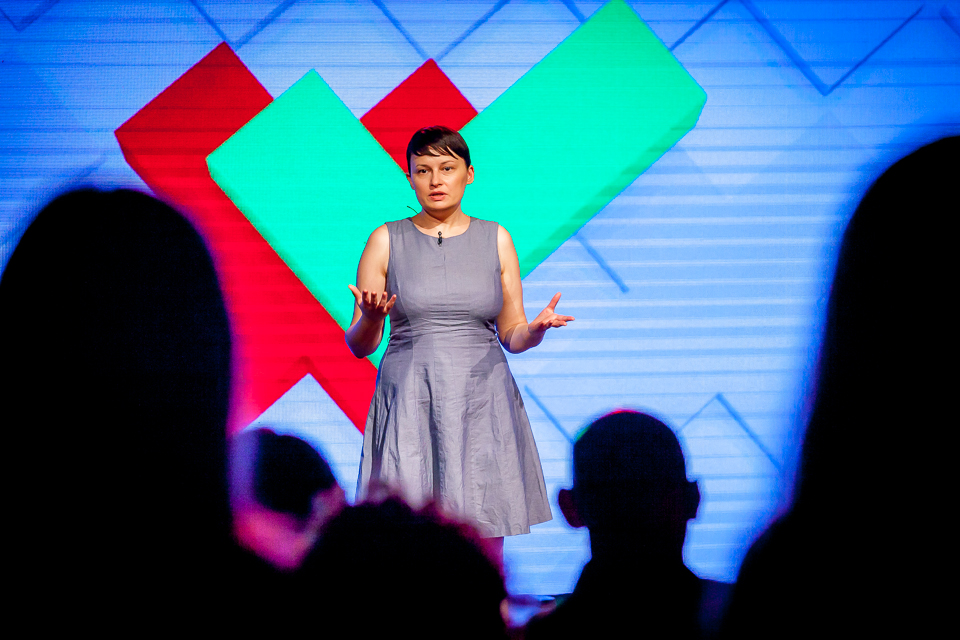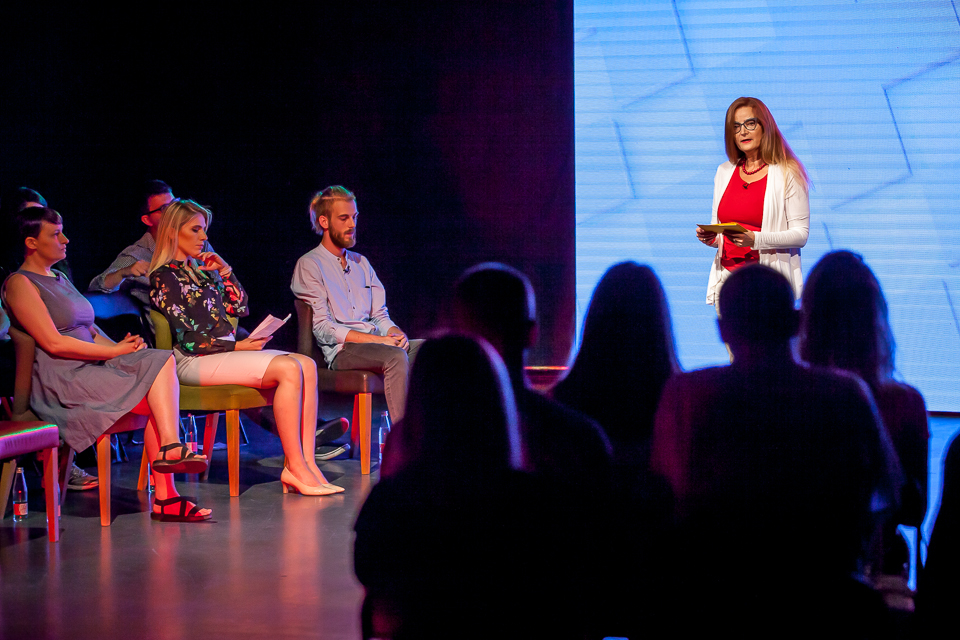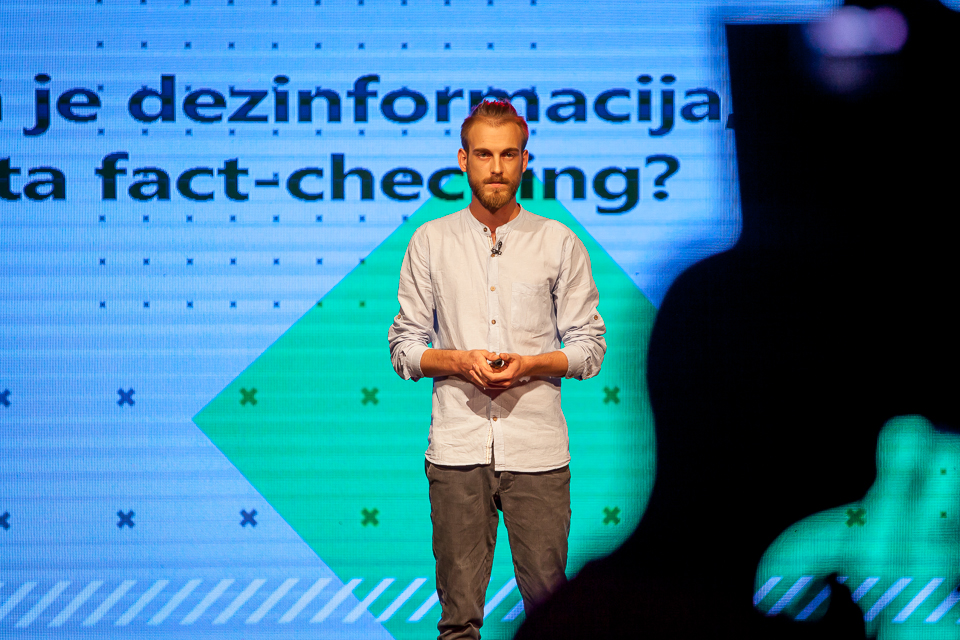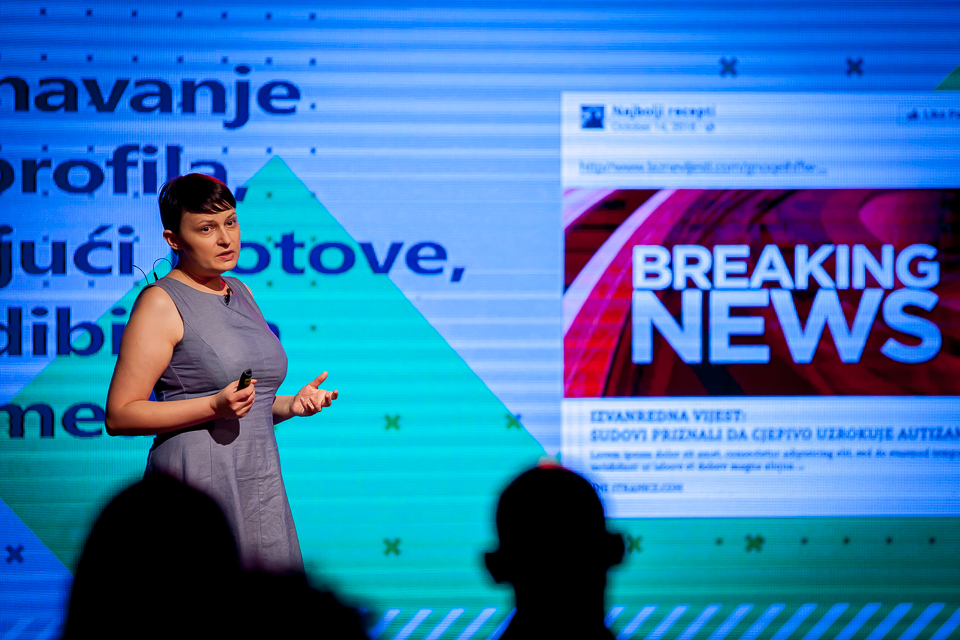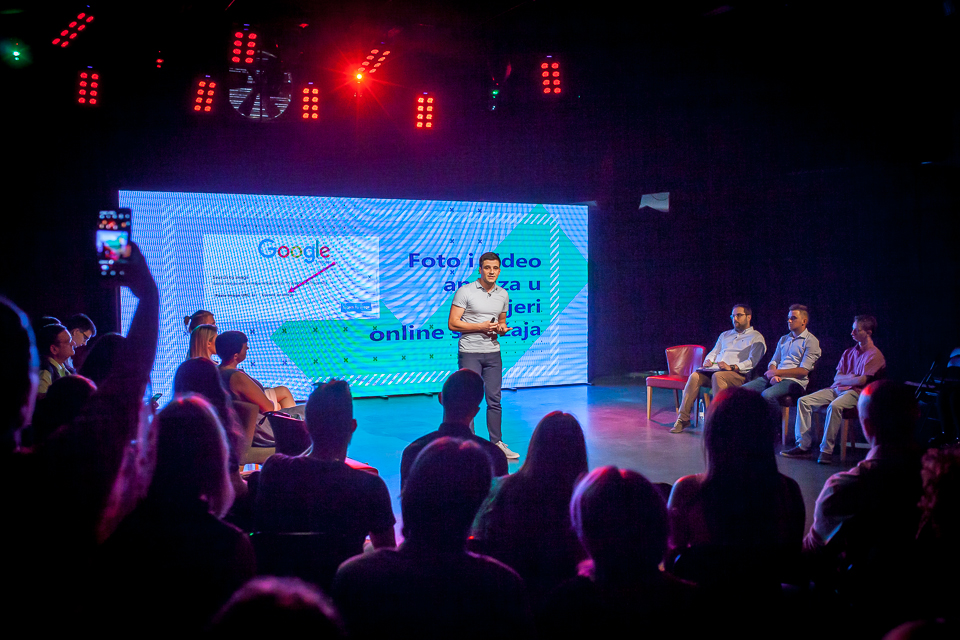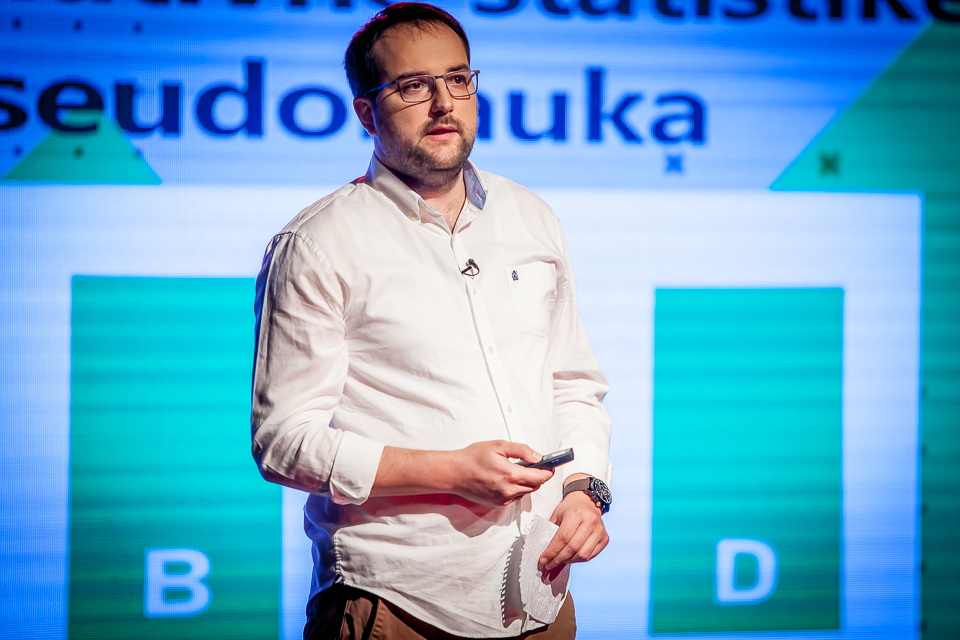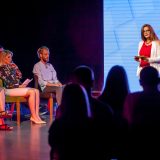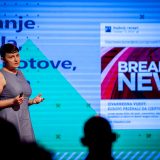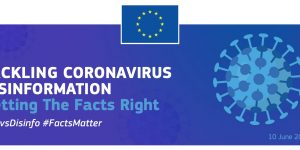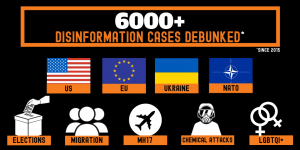“We are familiar with the phrase; a picture speaks more than a thousand words. However, a more pertinent question may be whether one picture can lie more than thousand words?” This is how Stefan Janjić, an expert from Novi Sad, began his presentation on disinformation during a public presentation of the project held on 23 July in Sarajevo. This public event was hosted within the project “Ne vjeruj na prvu/ Do not believe in the first shot” implemented by the European Union in Bosnia and Herzegovina aiming to address the issue of online disinformation Head of the Communication Office of the EU in BiH , Jamila Milović- Halilović, said that disinformation is neither a new phenomenon, nor is it a problem specific to BiH, but that “development of technology and its accessibility has allowed disinformation to be created and spread faster than ever“.
Lecturers Emir Zulejhić, Stefan Janjić, Vuk Vučetić, Tijana Cvjetićanin and Marina Riđić, professionals dealing with the issue of production and dissemination of misinformation, attempted to discover the most common motives for publishing lies and spreading untruths. They also presented digital tools used to check, verify and monitor the origin of media content.
“Information is often used in order to serve a certain political interest, or simply to generate profit. Information becomes misinformation or false or misleading information that is created, released and expanded in order to produce financial gain or to deliberately deceive the public. It may cause public harm, including the threat to democratic processes and public well-being”, Emir Zulejhić said.
“So how can we fight against such fraud? For a start, whenever we are confronted with news that is emotionally overwhelming and yet seems somewhat dubious, we have to question its affects and effects. Therefore, regardless of how much a news story deeply moves, excites or amazes you, do ask yourself how much truth there is in it”, Marina Riđić observed, presenting the topic “Reasons and strategies in the use of disinformation”
Tijana Cvjetićanin spoke about recognising fake profiles (including bots) and non-credible online media and made the following parallel: “There are people we know and trust and people who we do not know and therefore do not know what kind of people they are. So why then do we believe portals, pages and profiles that have no wish to properly present themselves and are completely anonymous?“.
Stefan Janjić presented more advanced photo forensics techniques using online tools such as TinEye and Forensically which allow one to obtain information on a camera used to take a photo, time of the photo shot, its location, and potential places in which the image was reconstructed. Vuk Vučetić spoke about manipulative statistics warning : “Whenever you encounter information seeming suspicious but also supported by numbers, graphs and quotes, open your eyes and pay attention to the methodology, sample, source and statistics, because these usually hide a trap of using seemingly rational means to persuade people that a lie is actually the truth“.
During the presentation, the project team also presented the brochure “Content Verification for Beginners: how to verify accuracy of online information” educating the audience on the tools for checking photos, videos and other online content.
All educational modules, as well as the brochure, will be included in the the #NeVjerujNaPrvu smart phone application which will soon be made available for download on the Google Play Store. Upcoming public presentations of the project and its educational materials will be held in Banja Luka and Mostar. Follow #NeVjerujNaPrvu Facebook page for more details.

